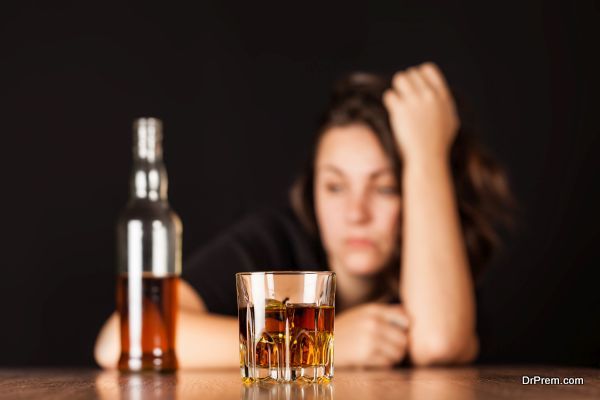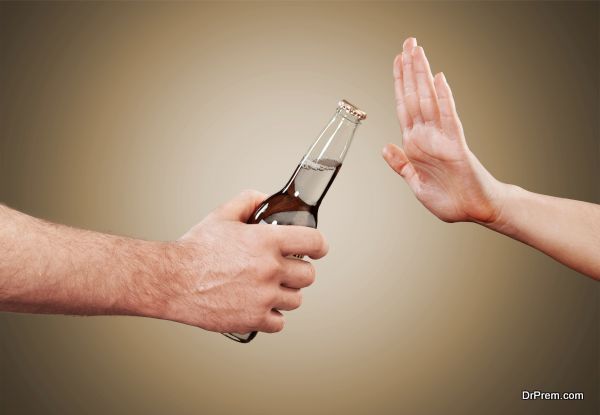“Your problems will go away when you stop drinking, not the other way around,” said a friend of mine recently.
This hard-earned snippet of wisdom came after many, many years of self-destructive behavior, a trip to the hospital that included family members gathering for a good-bye vigil and a recovery that no one expected.
Suddenly, it seemed, this friend, let’s call her Anne, was sober, back on her feet and contemplating returning to work after more than a decade receiving disability checks all because of her drinking.
She was discovering a simple, glorious truth. Instead of running away from problems, she was confronting them. Her life suddenly had promise again. But it is not always that simple.
According to experts at Hotel California By The Sea, a recovery center in Newport Beach, alcoholism and drug dependence can be a grab-bag of co-occurring disorders, such as chronic or acute anxiety, depression, bipolar depression, mood disorders, hypomania, attention deficit hyperactivity disorder, major depression, eating disorders, learning disabilities and others.
Of course, this has serious implications for anyone addicted to alcohol or drugs. Primarily, any effort made to kick the addiction can spiral around and find the addict returning to their destructive behaviors because sobriety means the sudden onset (or a revival) of the painful co-occurring condition that their drug of choice was making a bit more tolerable.
From an addict’s point of view, the following explanation might even sound blasphemous. But therapists understand that the addictive substance constitutes a coping mechanism. While dangerous, destructive and very often illegal, addictive substances serve the purpose, at least for a while, of making life tolerable for people suffering from other problems. The problem with this lifestyle is that addictions are a destructive coping mechanism, rather than a constructive one.
Here’s one very common pattern for addictions. Someone suffers from undiagnosed depression and they begin drinking in their teenage years to combat it. By the time they are a young adult, alcoholism may be diagnosed, but the depression is masked by a blur of untrustworthy symptoms.
Trying to diagnose the depression now is like trying to find out what color paint lies under sixteen other layers of paint. You might suspect depression is buried under the rest of the problems, but how do you know until, like my friend Anne might say, you stop drinking and give yourself a chance to confront your problems.
But let’s see now how the cycle completes itself. Let’s imagine that this person with undiagnosed depression stops drinking all by themselves. Friends and family cheer this decision and the healthier choice this person has made. But a month or two later, the addiction returns. This is because a cloud of depression, still undiagnosed, rears its ugly head. Scared, feeling beaten, seeking a sure-fire way to smother the depression, the addict turns back to using drugs, pills, alcohol or some combination of them.
It should be pointed out here that there are two types of recovery. One of them is far better than the other for family, friends, co-workers and others and one is not.
Have you ever heard the expression of a dry drunk? This is a very real condition that describes someone who has quit drinking, but has not confronted their underlying problems. A dry drunk, typically, is moody, irrational at times, angry, depressed, takes their anger out on others, occasionally rages and tries to blame others for their problems. In so many words, a dry drunk behaves very much like a someone who is drunk. They are “white-knuckling it” through recovery, hoping to recover from their addiction by sheer willpower alone.
Sometimes this works. But the price paid can be devastating. Dry drunks frequently get divorced or alienate family and friends. They become estranged from their children. They spiral into chronic problems at work.
This often leads to a brand new addiction. Dry drunks become abusers of prescription drugs, become addicted to food, sex, pornography, gambling. Remember, an addiction is “a pathological relationship with a mood-altering behavior or substance.” Dry drunks are extremely high-risk for other addictions.
The other choice for recovery includes a cessation of the substance or behavior and a sincere effort to look at the underlying problems to understand what has been creating the lifelong pain for the addict and unraveling these issues one by one.
The choices on this seem daunting to some, ridiculous to others. But finding a therapeutic venue that the addict feels is right for them is taking the high road – no pun intended – for recovery. Furthermore, luckily for the addict, emotions are changeable.
You might feel extremely embarrassed going in for treatment, I used to tell my clients, but you may also feel extremely proud of yourself when the treatment is done. To be on your feet, sober, and to know where you stand. It doesn’t get any better than that.
Article Submitted By Community Writer



